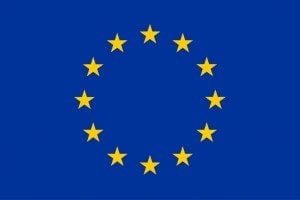
Latvian MARIO grantee in peer learning visit to ALEM, MARIO grantee in Croatia
In October, Latvian MARIO grantee Selonian Islands visited the the Association for Nurturing and Promoting the Culture, Musical and Spiritual Traditions of Bosniaks (ALEM)’s ‘Political Academy’ project as part of a peer learning visit to Zagreb.
The Political Academy project was built around educating young ethnic minorities on their rights and roles within the Croatian society, with the overall goal of the political education of young generations of Bosniaks. Currently 12 young intellectuals attend the academy, thus broadening their horizons and looking to understand their role in society. The academy’s program consists of fifteen weekly lectures by eminent experts from cultural and political life. In addition to the lectures, a tour of government institutions of the Republic of Croatia and Bosnia and Herzegovina is planned as part of the project.
What are our rights? The curriculum of the academy aims to answer this question via guest lecturers and lawyers that deal with minority rights issues. The Croatian Constitution guarantees certain minority rights, such as employment preferences and political representation at local and national levels. Unfortunately, minorities are largely unfamiliar with their rights. This project serves as a pioneer of minority rights awareness-raising. Our goal is to continue organizing this project and ultimately form an alumni club that gathers previous academy attendees to mark important milestones in the fight for minority rights.
What is the role of one’s people on a European and global scale and what is the role of one’s community within Croatian society? One of our most important goals is highlighting the role Bosniaks played in the creation of present-day Croatian society. Our historians, linguistics and sociologists are tasked with pinpointing the contribution of Bosniaks to the historical and social fabric of Croatia. It is of vital importance that the youth understand the part played by Bosniaks both during Croatia’s inception and throughout its history in order to be treated equally to their fellow Croatian citizens.

Along with the legal and historical aspects, the Academy aims to encourage its participants to explore their potential and capabilities. Through workshops, we try to create communicative and entrepreneurial people that will help us reach our goals. The public speaking and communication workshop opens up opportunities for young people to better establish contacts, which shatters possible prejudices about their minority identity and establishes healthy business and social ties. At the held joint session, the guests from Latvia expressed their views on the challenges faced by ethnic minorities scattered in rural border areas and highlighted the difficulties they encountered during the implementation of their projects. The participants of the academy presented the problems faced by minority groups in the Republic of Croatia through their perspective as young intellectuals and future high-ranking officials. The academy’s programme is not based on repetitive lectures and aimless workshops, but on interaction and an individual approach, for a young person is like a flower that needs to be cultivated in the garden of society.
The Latvian delegation also visited the Parliament of Bosniak Associations of Croatia, where Mr. Ishak Hodžić presented the Parliament as the umbrella organization of Bosniak associations in Croatia. The two organizations commented on the emerging geopolitical problems in Eastern Europe, comparing them to the war that engulfed the European Southeast in the 1990s. They also visited the mosque in Zagreb, which is the central institution of the religious life of Bosniaks and other national minorities who practice Islam. During the tour of the mosque, they paid tribute to the fallen Bosniak fighters from the Homeland War.
 This content is a guest post from one of our partner organizations about their work as part of our ‘Minorities, Accountability, Rights, Independence and Organisational Development’ (MARIO) programme. Learn more >
This content is a guest post from one of our partner organizations about their work as part of our ‘Minorities, Accountability, Rights, Independence and Organisational Development’ (MARIO) programme. Learn more >
 MARIO is funded by the Citizens, Equality, Rights and Values Programme (2021-27) of the European Union (ref: 101091387).
MARIO is funded by the Citizens, Equality, Rights and Values Programme (2021-27) of the European Union (ref: 101091387).
